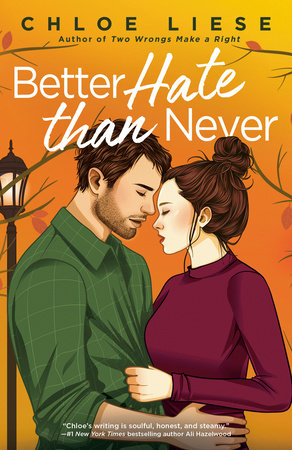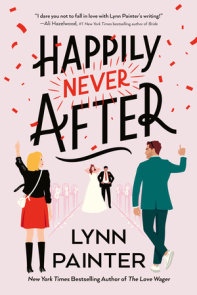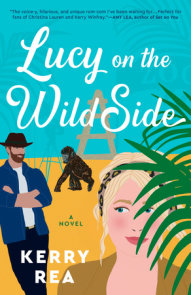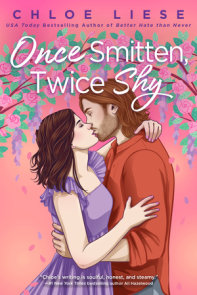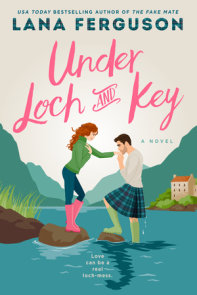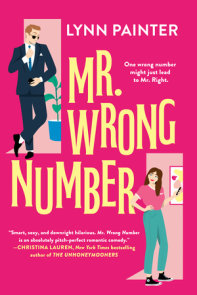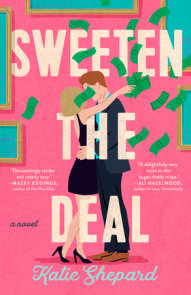READERS GUIDE
Reader’s GuideBetter Hate than Never by Chloe Liese
Discussion Questions:
1. If you’re familiar with Shakespeare’s The Taming of the Shrew, what are some parallels and departures that you noticed between the original text and this modern reimagining, in plot, themes, character names, and relationships? If you aren’t familiar with The Taming of the Shrew, do you now find yourself curious to read it or watch a film adaptation?
2. Speaking of film adaptations, the iconic late-90’s rom-com, starring Julia Stiles and Heath Ledger, 10 Things I Hate About You, is a clever, swoony reimagining of The Taming of the Shrew. If you’ve watched the film, did you spot any references to it in Better Hate than Never?
3. Better Hate than Never features a neurodivergent heroine who has ADHD and a hero who lives with chronic migraines. What was it like for you to see the world through their eyes? For those who aren’t neurodivergent or don’t have a chronic condition, do you think reading from this perspective impacted how you might perceive and engage people who identify as such? Are there some ways you relate to Kate’s and Christopher’s experiences?
4. Shakespeare’s The Taming of the Shrew can be a difficult play for the modern reader to engage with, given its misogynistic language and treatment of women. Critics have long wondered what Shakespeare, who penned so many strong, empowered heroines, was up to, writing a play whose title says it all. Was it a parody of sexism in Renaissance society, meant to unsettle and provoke? We can’t be sure. How do we see the “taming of the shrew” idea subverted in this book, in the manner in which Christopher views and treats Kate? In Kate
and Christopher’s relationship arc? In how Kate is viewed and treated by those around her?
5. The term shrew has been used for centuries to mean an “argumentative” or “angry” woman, contrasted to a woman who is obedient, compliant, and subservient to men within the patriarchal power system. While we have evolved societally from Shakespeare’s time, do you think we still cast women as shrews when they speak out, disagree with, and challenge cultural norms and ideologies? Why or why not? How do we see that borne out in representation of “strong” or “feisty” women in media coverage, books, film/TV, and other art forms?
6. Themes of found family and family belonging are prevalent in this story. What do you make of Christopher, who isn’t a Wilmot, feeling a greater sense of family belonging in his found family of the Wilmots than Kate, who is a Wilmot, yet who doesn’t feel like she belongs to her own family much at all? What do you make of the journey these two undergo in their relationship to the Wilmots and to the friend group, which is another found family system? How does this shift reflect Kate’s and Christopher’s character growth arcs and relationship arc throughout the story?
7. Kate and Christopher have a lot of unlearning to do about each other after years of misunderstandings and resentment. In that process of unlearning, they realize that while their approaches to life have looked quite different, they actually share some similar fears and vulnerabilities, as well as values and hopes for the world. Have you ever built a positive relationship with someone—platonic, romantic, or otherwise—after it began with misunderstanding or acrimony? What allowed you to discover common ground and build a connection?
8. At the end of Better Hate than Never, some time has passed since Kate and Christopher began their exclusive relationship, and we see how these two are growing as individuals and also growing into their relationship with each other. What did you think of the end of the book in terms of how it reflected that? Was it what you expected or did you think it might end differently?







